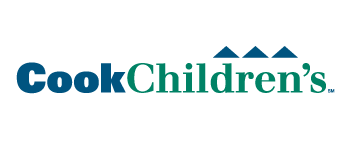Expanded Access Use of Stiripentol in Dravet Syndrome or Sodium Channel Mutation Epileptic Encephalopathies
| Status: | No longer available |
|---|---|
| Conditions: | Other Indications, Neurology, Neurology |
| Therapuetic Areas: | Neurology, Other |
| Healthy: | No |
| Age Range: | Any - 18 |
| Updated: | 2/2/2019 |
Expanded Access Use of Stiripentol in Participants With Dravet Syndrome or Epileptic Encephalopathies Associated With Sodium Channel Mutations
This is an expanded access use of Stiripentol in Dravet Syndrome or epileptic
encephalopathies associated with sodium channel mutations who have failed other drugs in an
effort to give them the best chance at seizure control and quality of life. As a treatment
protocol and not a research study, children will only be monitored on a clinical basis for
seizure improvement and side effects predominantly by parent and caregiver report.
encephalopathies associated with sodium channel mutations who have failed other drugs in an
effort to give them the best chance at seizure control and quality of life. As a treatment
protocol and not a research study, children will only be monitored on a clinical basis for
seizure improvement and side effects predominantly by parent and caregiver report.
The initial dose of Stiripentol will be determined by the prescribing neurologist and
titrated up to an initial goal dose of 50 mg/kg/day divided into 2 to 3 doses per day.
Further dose increases by 10-20 mg/kg/day increments up to a max of 100 mg/kg/day or 4000 mg
total daily dose may be necessary for improved seizure control.
Stiripentol is available as gelatin capsules and powder sachets (250 mg, 500 mg). The same
granule formulation (i.e. active, PVP and portion of sodium starch glycolate) used for the
capsule is used in the final powder blend with a few additional excipients. Depending upon
patient weight, the 250 mg or 500 mg formulation will be utilized for each participant.
Caretakers will be queried about common adverse effects including drowsiness, tremor, ataxis,
nausea, anorexia, weight loss, and emesis. Intolerable adverse effects will prompt dose
reduction or withholding medication.
Monitoring of these and other potential AEs will occur during study visits and
participant-initiated telephone calls throughout the study. Safety events and tolerability
will be recorded as adverse events (AE) or serious adverse events (SAE).
Physical examination, weight, vital signs, and laboratory tests (cbc, complete metabolic
panel, and AED levels) will be conducted at baseline and at least every 6 months and as
clinically warranted.
titrated up to an initial goal dose of 50 mg/kg/day divided into 2 to 3 doses per day.
Further dose increases by 10-20 mg/kg/day increments up to a max of 100 mg/kg/day or 4000 mg
total daily dose may be necessary for improved seizure control.
Stiripentol is available as gelatin capsules and powder sachets (250 mg, 500 mg). The same
granule formulation (i.e. active, PVP and portion of sodium starch glycolate) used for the
capsule is used in the final powder blend with a few additional excipients. Depending upon
patient weight, the 250 mg or 500 mg formulation will be utilized for each participant.
Caretakers will be queried about common adverse effects including drowsiness, tremor, ataxis,
nausea, anorexia, weight loss, and emesis. Intolerable adverse effects will prompt dose
reduction or withholding medication.
Monitoring of these and other potential AEs will occur during study visits and
participant-initiated telephone calls throughout the study. Safety events and tolerability
will be recorded as adverse events (AE) or serious adverse events (SAE).
Physical examination, weight, vital signs, and laboratory tests (cbc, complete metabolic
panel, and AED levels) will be conducted at baseline and at least every 6 months and as
clinically warranted.
Inclusion Criteria:
- 6 months and older
- Diagnosis of Dravet Syndrome or epileptic encephalopathies associated with SCN1A
mutations defined as:
- A documented gene mutation reported to result in Dravet syndrome phenotype; OR
- Clinical confirmation of Dravet syndrome by two pediatric neurologists; OR
- Clinical confirmation of other epileptic encephalopathies associated with sodium
channel mutations
- Failure of at least 2 therapeutic anticonvulsants (excluding Na Channel blockers)
indicative of intractable seizures
Exclusion Criteria:
- Hypersensitivity to the active substance or to any of the excipients
- Past history of psychoses in the form of episodes of delirium
- Impaired hepatic and/or renal function, defined as creatinine >2 and/or transaminase
>4xULN
We found this trial at
1
site
801 7th Avenue
Fort Worth, Texas 76104
Fort Worth, Texas 76104
(682) 885-4000

Principal Investigator: Scott Perry, MD
Phone: 682-885-2488
Cook Children's Medical Center Cook Children's Health Care System is a not-for-profit, nationally recognized pediatric...
Click here to add this to my saved trials